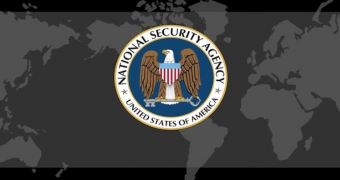A new report based on documents leaked by NSA whistleblower Edward Snowden indicates that the NSA pays hundreds of millions of dollars a year to US companies for access to their communications networks.
The document reveals the black budget assigned to the intelligence agencies in the United States, including the NSA and CIA.
Out of the total spending, a big chunk goes to participants in the Corporate Partner Access Project for major US telecommunications providers.
The documents reveal the agency taps into “high volume circuit and packet-switched networks.” The program was expected to cost $278 million (€210 million), which is down from how much it was spent in 2011 – $394 million (€298 million).
The Washington Post indicates that voluntary cooperation from several providers of global communications dates back to the ‘70s. The project was given the cover name BLARNEY, which, along OAKSTAR, FAIRVIEW and STORMBREW, were previously set under the programs under the “passive” or “upstream” collection.
Basically, they capture data as they move across fiber-optic cables and gateways that direct global communications traffic.
Verizon, AT&T and other major telecommunications companies have been at the center of the NSA scandal since it started back in June and now seem to have nothing left to say in their defense.
Marc Rotenberg, executive director at the Electronic Privacy Information Center, told The Post that this new information “turns surveillance into a revenue stream, and that’s not the way it’s supposed to work.”
“The fact that the government is paying money to telephone companies to turn over information that they are compelled to turn over is very troubling,” he said.
Of course, some of the money could be covering costs these companies suffer for collecting and passing on such data requested by the NSA, as other industry officials noted.
So far, the documents provided by Snowden don’t seem to indicate a budget set aside for companies working under the PRISM program, despite this being the source of 91 percent of the 250 million Internet communications collected.

 14 DAY TRIAL //
14 DAY TRIAL //